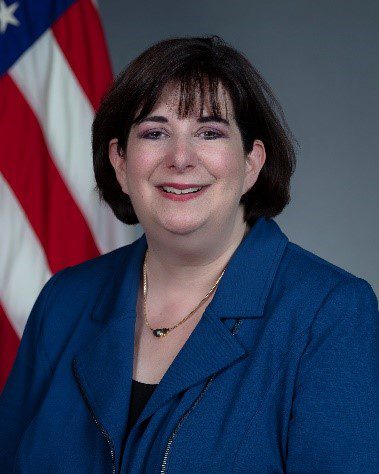
The finalists for WashingtonExec’s Chief Officer Awards were announced March 25, and we’ll be highlighting some of them until the event takes place live, in-person May 11 at the The Ritz-Carlton in McLean, Virginia.
Next is Chief Data Officer (Government) finalist Nancy Morgan, who’s intelligence community CDO in the Office of the Director of Intelligence. Here, she talks key recent achievements, career turning points, primary focus areas going forward and more.
What key achievements did you have in 2021/2022?
I am proud to lead the U.S. intelligence community chief data officers in transforming how we manage the volume and variety of information and data we collect and produce every day. From tackling a rewrite of the IC Data Strategy, to modernizing our data management practices and developing enterprise class data services, it’s all about treating our data as a valuable IC asset. The national security and intelligence threat landscape is more complex than ever before, making data interoperability all the more critical to achieving decision advantage.
In response to clear direction from the White House and DNI leadership, I also spent significant energy expanding and leveraging partnerships with our allies; federal, state, local and tribal groups; and the private sector. These partnerships will improve two-way information sharing and accelerate innovation.
We have so many important efforts underway, but I am really energized by the work that we are doing to initiate data acumen efforts across the IC. We want to recruit, develop and retain a data savvy workforce; grow our data skills; and make more data-driven decisions at every level of the organization. This is part of our journey to become a more data-centric intelligence enterprise.
What was a turning point or inflection point in your career?
Early in my government career, I made a pivot from being an end-user to becoming an IT project manager. I graduated with a liberal arts degree in international relations and French, so it was a pretty big shift to get a master’s degree in information systems and dive into the world of project management. I had a knack for navigating between mission users and the IT people and then delivering better results.
My second pivot was adopting agile methodologies. The contractors on my team at the time pushed me to approach software development differently. Once I started, I never looked back.
Those agile best practices are still with me today — some of my favorites are breaking projects into smaller increments, continuous customer collaboration, and retrospectives to quickly inspect and adapt.
What are your primary focus areas going forward, and why are those so important to the future of the nation?
As we pivot to becoming a truly data-centric intelligence enterprise, we need to turn our IC Information Environment Data Strategy into concrete actions and implementation plans. As CDOs, we need to accelerate delivery and adoption of common data services, data models and metadata standards to enable seamless data interoperability around the world.
Together, we need to drive responsible, legal and ethical sharing and safeguarding of data and information — by both humans and machines — as part of and making the IC’s augmenting intelligence with machines concepts real at speed and scale.
On the partnership front, we need to identify unconventional ways to expand partnerships and our partner engagement framework to address emerging and evolving intelligence threats and opportunities. We are counting on the full range of private sector partners to help us develop new ways to provide even better intelligence insights, extend our reach and accelerate innovation. We also have a shared responsibility to augment our cyber defense posture and increase two-way information sharing to fend off adversaries.
While we as CDOs like to say that it is all about the data, we cannot succeed without the skilled people needed to manage our data holdings. We must double down on programs for data acumen; directly invest in our people; recruit, develop and retain a data-savvy workforce; and leverage public-private partnerships. This includes our new Public-Private Talent Exchange construct, which will promote a shared understanding between the IC and the public sector by increasing the two-way flow of talent into and out of the community.
Again, it’s about getting the right information to the right people and machines at the right time to achieve intelligence and decision advantage.
How do you help shape the next generation of government leaders/industry leaders?
Invest in your people, both in formal and informal ways. Be an active coach, mentor and sponsor. Give them opportunities to take on challenging work, help them grow their professional network and give direct feedback even when it is hard to hear. Be a sounding board when the going gets tough.
It is also important to be candid about my own struggles and successes, the challenges of work-life balance and how my career evolved in unexpected but highly rewarding ways. I am stronger as a CDO and as an executive leader because of the range of experiences that I had in my career and the professional relationships that I built and nurtured.
What’s your best career advice for those who want to follow in your footsteps?
Do not be afraid to take on hard assignments that are outside of your area of expertise or comfort zone. Be a curious learner and constantly seek out people who have diverse skills and perspectives.
Take time to ponder how insights from those people affect your thinking and approach. My most successful programs involved cross-functional teams, both formal and informal. The energy from high-performing teams — and your internal and external partners — drives even more success. Those people continue to be my go-to resources for future efforts.
When in doubt, I find that chocolate always helps — sharing chocolate leads to sharing ideas.

